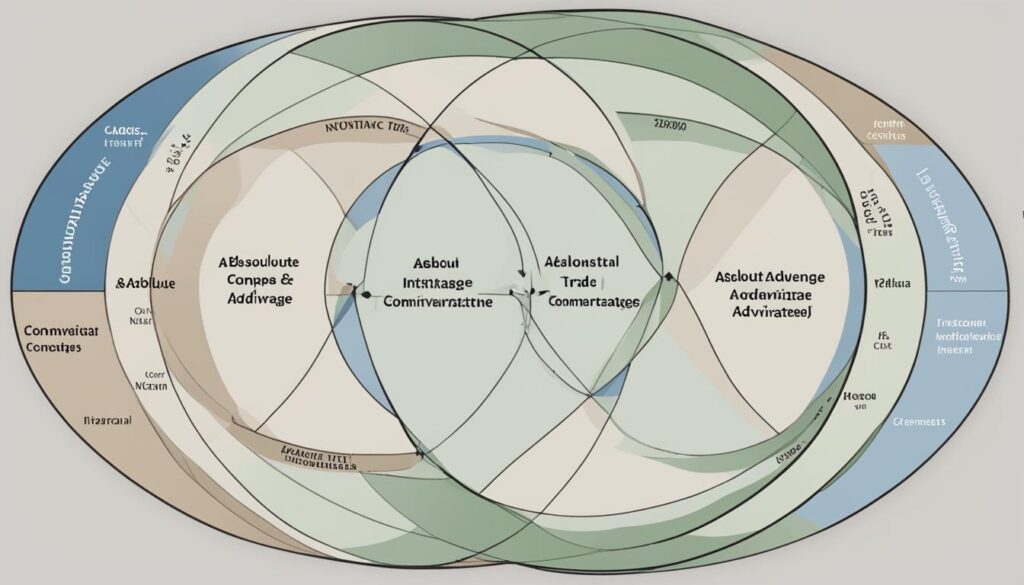The Economics HL syllabus in HK provides a comprehensive understanding of economic principles and theories. It consists of four main units: Introduction to Economics, Microeconomics, Macroeconomics, and The Global Economy. The syllabus has been recently revised to include topics such as sustainability, poverty, inequality, and behavioral economics. The weighting of assessments has also been adjusted, with a greater emphasis on external exams. This guide will delve into each unit and provide insights for HK learners.
Key Takeaways:
- The Economics HL syllabus in HK covers four main units: Introduction to Economics, Microeconomics, Macroeconomics, and The Global Economy.
- Recent revisions to the syllabus include topics like sustainability, poverty, inequality, and behavioral economics.
- The revised syllabus places a greater emphasis on external exams for assessment.
- Students will develop critical thinking, analytical skills, and an understanding of economic concepts and their applications in different contexts.
- Private tutoring can provide personalized guidance and support in navigating the Economics HL syllabus.
Exploring the Basics of Economic Theory in Unit 1
Unit 1 of the Economics HL syllabus introduces students to the foundations of economic theory. It covers concepts such as scarcity, opportunity cost, supply and demand, and the role of economists in analyzing the world. Students will develop an understanding of key economic principles and how they apply to real-world situations. The unit also explores the skills and requirements for success in the IB Economics course, including critical thinking, analytical skills, and the ability to apply economic concepts to different contexts.
“The study of economics is not about money. It is about understanding how people make choices and how those choices affect society.” – Rashida Tlaib
To delve deeper into the topics covered in Unit 1, let's take a closer look at its contents:
| Topics Covered in Unit 1 | Description |
|---|---|
| Scarcity and Choice | Exploring the fundamental problem of limited resources and unlimited wants, and how individuals and societies make choices. |
| Opportunity Cost | Understanding the concept of opportunity cost and its role in decision-making. |
| Supply and Demand | Examining the forces of supply and demand and their influence on prices and quantities in the market. |
| Economists and Their Methods | Exploring the role of economists in analyzing and predicting economic behavior using various methods and models. |
Unit 1 sets the foundation for a solid understanding of economics and provides students with the necessary tools to navigate the complex world of economic theory. It lays the groundwork for the subsequent units in the Economics HL syllabus, enabling students to build upon their knowledge and apply economic principles to a wide range of scenarios.
Examining Individual Economic Agents in Unit 2
Unit 2 of the Economics HL syllabus delves into microeconomics, which focuses on the behavior of individual economic agents such as households, firms, and industries. Students will explore various topics that shed light on how these agents interact and make decisions in the market. By Understanding the principles and theories of microeconomics, students can gain insights into the functioning of markets and analyze real-world economic scenarios.
Key Topics in Unit 2
In Unit 2, students will encounter a range of essential topics that form the core of microeconomic theory. These topics include:
- Market structures and their characteristics
- Price determination and the forces of demand and supply
- Elasticity of demand and supply
- The role of government intervention and its impact on markets
- Market equilibrium and the concepts of consumer and producer surplus
- Externalities and their effects on market outcomes
By studying these topics, students will develop analytical skills and learn to evaluate economic concepts and theories in different economic scenarios. They will also gain a deeper understanding of the factors influencing market outcomes and the role of individual economic agents in shaping economic behavior.
Evaluation and Assessment
To assess students' understanding of microeconomic concepts covered in Unit 2, the Economics HL syllabus includes a variety of evaluation methods. These include:
- Internal assessments (IA) that examine students' ability to apply economic theory to real-world situations
- External exams, including Paper 1 and Paper 2, which test students' knowledge and understanding of microeconomic principles
By engaging in a combination of internal and external assessments, students gain a comprehensive evaluation of their proficiency in microeconomics. This holistic approach ensures that students not only grasp key theoretical concepts but also develop essential skills in critical thinking, problem-solving, and economic analysis .
Understanding the Broader Aspects of the Economy in Unit 3
Unit 3 of the Economics HL syllabus delves into the fascinating realm of macroeconomics, offering students a comprehensive understanding of the aspects of the economy. This unit explores key topics such as national income, inflation, unemployment, and government policies that shape economic systems. It equips students with the knowledge and analytical tools necessary to analyze and evaluate macroeconomic concepts and their implications for policy-making and global development.
One of the central themes of Unit 3 is the measurement of economic activity. Students will learn about various indicators used to assess the health of an economy, such as Gross Domestic Product (GDP), inflation rates, and unemployment rates. They will explore the relationships between these indicators and gain insights into how policymakers make use of this information to formulate effective economic strategies.
The unit also focuses on macroeconomic objectives, emphasizing the importance of sustainable economic growth and stability. Students will examine demand-side and supply-side policies and their impact on economic performance. They will analyze the role of fiscal and monetary policies in managing aggregate demand and controlling inflation. Additionally, students will explore the intricacies of international trade and the global economy, understand the interconnectedness of economies and the impact of global events on national economies.
Throughout Unit 3, students are encouraged to critically analyze real-world economic scenarios and consider the implications of economic decisions on social well-being. This unit provides a holistic understanding of macroeconomics, ensuring that students are well-equipped to navigate the complexities of the global economy and contribute to sustainable economic development.

Table: Macroeconomic Concepts
| Concept | Definition |
|---|---|
| Gross Domestic Product (GDP) | The total value of goods and services produced within a country in a specific time period. |
| Inflation | An increase in the general level of prices, reducing the purchasing power of money. |
| Unemployment | The number of people who are actively seeking employment but are unable to find jobs. |
| Fiscal Policy | The use of government spending and taxation to influence economic activity. |
| Monetary Policy | The use of interest rates and money supply to control inflation and stabilize the economy. |
| International Trade | The exchange of goods and services between countries. |
| Globalization | The increasing interconnectedness of economies and societies on a global scale. |
Exploring International Trade and Development in Unit 4
Unit 4 of the Economics HL syllabus delves into the complex world of international trade and development. This unit focuses on key topics such as international trade, exchange rates, balance of payments, and strategies for economic development. Students will gain a comprehensive understanding of the benefits and challenges of international trade, as well as its impact on global economies.
One of the important concepts covered in this unit is the balance of payments, which measures the economic transactions between a country and the rest of the world. Students will learn about current account and capital account balances, as well as the factors that influence exchange rates . The unit also discusses the impact of exchange rate fluctuations on trade competitiveness and economic stability.
In addition, Unit 4 explores various strategies for economic development, including import substitution, export promotion, and foreign direct investment. Students will analyze the advantages and disadvantages of these strategies and their implications for sustainable economic growth. They will also examine the role of international organizations such as the World Trade Organization (WTO) and the International Monetary Fund (IMF) in shaping global trade policies.
Globalization and its impact on economic systems
Globalization is a key theme in Unit 4, highlighting the interconnectedness of economies and the challenges it poses. Students will explore how globalization has influenced economic systems, including the rise of global supply chains and the integration of financial markets. They will also examine the impact of globalization on economic inequality and the role of government policies in managing these challenges.
This unit provides students with the knowledge and skills to critically analyze global economic issues and propose strategies for promoting sustainable economic development. By understanding the intricacies of international trade and development, students will be better equipped to navigate the complexities of the global economy and contribute to its growth and stability.

| Key Topics | Subtopics |
|---|---|
| International Trade | Benefits of international trade Challenges of protectionism |
| Exchange Rates | Factors influencing exchange rates Impact of exchange rate fluctuations on trade competitiveness and economic stability |
| Balance of Payments | Current account and capital account balances Measuring economic transactions with the rest of the world |
| Economic Development Strategies | Import substitution Export promotion Foreign direct investment |
| Globalization | The rise of global supply chains Integration of financial markets Impact on economic inequality |
Changes in the Assessment Weightings
The revised Economics HL syllabus introduces changes in the assessment weightings to provide a more comprehensive evaluation of students' understanding and application of economic concepts. The adjustments aim to create a balanced assessment approach that reflects the importance of both internal and external evaluations.
For Standard Level (SL) students, the internal assessments (IA) now constitute 30% of the overall grade, while the external exams (Paper 1 and Paper 2) carry 30% and 40% weightings respectively. This change ensures that students' knowledge and skills developed throughout the course are reflected in their final grade.
For Higher Level (HL) students, the IA contributes 20% of the grade, and Paper 1 and Paper 2 each carry 30% weightings. Additionally, the quantitative paper, previously known as Paper 3, now carries 20% weightage. These adjustments provide a more holistic assessment of students' abilities and encourage them to showcase their understanding of economic concepts in a variety of assessment formats.
| Assessment Component | Standard Level Weighting | Higher Level Weighting |
|---|---|---|
| Internal Assessments (IA) | 30% | 20% |
| Paper 1 | 30% | 30% |
| Paper 2 | 40% | 30% |
| Paper 3 (Quantitative Paper) | N/A | 20% |
This revamped assessment structure encourages students to develop their analytical skills, critical thinking abilities, and apply of economic concepts to real-world situations. By placing more emphasis on external exams, students are motivated to excel in their understanding of the subject matter, ensuring they are well-prepared for future academic and professional pursuits in the field of economics.
Benefits of the New Economics HL Syllabus
The revised Economics HL syllabus offers several advantages for students in Hong Kong. It provides a comprehensive understanding of economic principles, prepares students to analyze and address global economic issues, and develops critical thinking and analytical skills. With a greater emphasis on topics such as sustainability , poverty, inequality, and behavioral economics, the new syllabus equips students to propose effective solutions to real-world economic problems.
One of the key benefits of the revised syllabus is its focus on the global economy and international trade. Students will gain insights into the benefits of international trade, the challenges of protectionism, and the strategies for achieving sustainable development. They will also explore the impact of globalization on economic systems and the role of international organizations. This comprehensive understanding of the global economy will enable students to analyze global economic issues and propose strategies for promoting sustainable economic growth and reducing global inequalities.
Furthermore, the new syllabus ensures a more holistic assessment of students' abilities. With a balanced weighting of internal and external evaluations, students' understanding and application of economic concepts are thoroughly tested. This comprehensive assessment approach provides a more accurate reflection of students' knowledge and skills, allowing them to demonstrate their understanding of economic principles and their ability to analyze economic scenarios effectively.
| Benefits of the New Economics HL Syllabus |
|---|
| Comprehensive understanding of economic principles |
| Preparation to analyze and address global economic issues |
| Development of critical thinking and analytical skills |
| Focus on sustainability, poverty, inequality, and behavioral economics |
| Insights into international trade and the global economy |
| Examination of the impact of globalization |
| Balanced assessment of students' abilities |
| Demonstration of understanding and application of economic concepts |
The Role of Private Tutoring in Economics HL Success
Private tutoring plays a crucial role in supporting student success in the Economics HL syllabus. With its personalized guidance and tailored approach, private tutoring provides students with invaluable resources and support to excel in their studies. One platform that offers free matching services to connect students with experienced private tutors is Getutor. Through one-on-one sessions, private tutors can clarify complex concepts, help students develop critical thinking and analytical skills, and provide additional resources and recommended readings to supplement classroom learning.
Private tutors also play a vital role in helping students navigate the Economics HL syllabus effectively. They can assist students in understanding the syllabus content, tackling challenging topics, and preparing for assessments. By addressing individual learning needs, private tutors create a conducive learning environment that fosters academic success. Additionally, private tutoring offers students the opportunity to receive personalized feedback and guidance, helping them refine their understanding of economic principles and improve their performance.
By availing themselves of private tutoring services, students can gain a competitive edge in their economics studies. Private tutors not only enhance students' understanding of the syllabus but also help develop important skills such as critical thinking, analytical reasoning, and effective communication. With the With the support of a private tutor, students can confidently navigate the Economics HL syllabus and achieve their academic goals.
Navigating the Economics HL Syllabus for Success
Successfully navigating the Economics HL syllabus in HK can be a daunting task for students, but with the right approach and resources, it can be a rewarding experience. The syllabus provides a comprehensive education in economics, equipping students with the necessary knowledge, skills, and analytical tools to excel in the field.
The revised Economics HL curriculum introduces important topics such as sustainability, poverty, inequality, and behavioral economics, ensuring that students are well-prepared to address real-world economic challenges. By embracing these changes, students can gain a deeper understanding of the subject and develop critical thinking abilities.
To enhance their learning experience, students can also seek additional support through private tutoring. Platforms like Getutor offer free matching services that connect students with experienced private tutors specializing in IB Economics. These tutors provide personalized guidance, clarify complex concepts, and offer additional resources to supplement classroom learning, ensuring that students can confidently navigate the Economics HL syllabus and achieve their academic goals.
FAQ
What are the main units covered in the Economics HL syllabus in HK?
The main units of the Economics HL syllabus in HK are Introduction to Economics, Microeconomics, Macroeconomics, and The Global Economy.
What topics have been recently added to the revised Economics HL syllabus?
The revised Economics HL syllabus now includes topics such as sustainability, poverty, inequality, and behavioral economics.
How have the assessment weightings changed for the Economics HL syllabus?
The assessment weightings have been adjusted, with a greater emphasis on external exams. For example, for SL students, internal assessments (IA) now constitute 30% of the overall grade, while external exams (Paper 1 and Paper 2) carry 30% and 40% weightings respectively.
What are the advantages of the revised Economics HL syllabus?
The revised Economics HL syllabus provides a comprehensive understanding of economic principles, prepares students to analyze and address global economic issues, and develops critical thinking and analytical skills.
How can private tutoring support student success in the Economics HL syllabus?
Private tutors provide personalized guidance, clarify complex concepts, and help students develop critical thinking and analytical skills. They also assist students in understanding syllabus content, tackling challenging topics, and preparing for assessments.
How can students navigate the Economics HL syllabus for success?
By having a clear understanding of the units, topics, and assessment requirements, students can excel in the comprehensive course. Seeking additional support through private tutoring can also enhance students' understanding and preparation.




